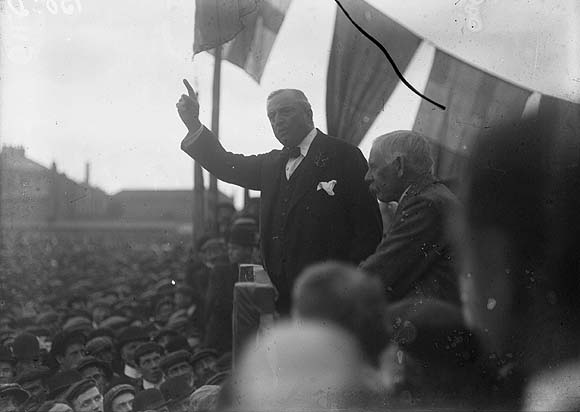Frequently Asked Questions for Cultural Heritage Institutions
CENDARI’s purpose is to bring content together and make it more usable for advanced historical research. It is not for the long-term collection and preservation of digitized content. Our emphasis is on enhancing discovery, both of collections and of patterns within collections, rather than on creating and maintaining actual resources. Therefore, we provide tools for gathering, enhancing and sharing archival resources with the CENDARI end users, within a powerful enquiry environment.

How Is CENDARI Different From Other Digital Repositories?
CENDARI builds on the work already done by cultural heritage institutions to add value to already digital finding aids and assets, focusing also on the ‘hidden’ collections, which may be less well represented in the digital landscape. Unlike a typical digital repository, we don’t have strict requirements for data ingestion. Cataloging documents such as collection descriptions and finding aids are essential instruments for historical research.
Therefore we are keen to provide tools for gathering, enhancing and sharing this documentation with the CENDARI end users, within a powerful enquiry environment.
Who Are CENDARI’s Users?
CENDARI is a research infrastructure for medieval and modern historians. Although the final environment may be of interest to other user groups, our two case study areas for the period of 2012-2016 are medieval culture and the First World War. After the end of this period, we plan to hand over our work to DARIAH, where it may be accessible to future user groups for application in other areas of interests.
What Are The Benefits For Your Institution?
Cultural heritage institutions are the starting point for most historical research: while research practices are changing within the digital landscape, CENDARI aims to accommodate pre-existing research methodologies. In other words, we wish to enhance the existing relationship between archives, libraries and researchers by providing them with the tools to discover, organize and enrich their data. By sharing your data with the CENDARI project, you will join a network of European cultural heritage institutions whose content is connected within a powerful research infrastructure, making it more easily discoverable by historians and researchers.
In particular, the benefits for your institution are:
- Visibility and searchability of collections
- Targeted access to the key user group (historians and collections experts)
- Data enrichment which will be shared back with your institution
- Transnational and multilingual functions, user annotations, data mining, data visualizations, connections with ontologies, etc
- Inclusion in a community of scholarly practice developing technical tools and standards fit for use in cultural heritage collections
- Opportunities to test the technologies we are implementing and observe how they work with your content.
- Participatory design workshops that help define requirements for new tools and services
What Format Does My Data Need To Have?
CENDARI can accommodate the following data provision scenarios:If your data are digitally available in common meta-data standards for archives and libraries, we can harvest it remotely either via API, OAI/PMH, or direct deposit if your data are not available in common metadata standards for archives and libraries, CENDARI can still integrate, and add value to, the collection descriptions, finding aids and other cataloging material your institution can provide.
Where the records of interest are not covered in existing finding aids, we can assist you with the creation of high level descriptions which will allow your content to be seen in the environment along- side other similar collections.We also have some capacity for technical consultancy, where this can be mutually of benefit.
What Kind Of Content Is CENDARI Looking For?
As the CENDARI pilot areas are medieval culture and First World War, we are looking for data and content related to these two area of studies. We highly value the data and content that are less visible in the digital environment.Examples of relevant data and content related to the First World War case study are:
- Military records
- Administrative records
- Personal collections, diaries, correspondences
- Photographs, films, posters, pamphlets
Examples of relevant data and content related to the medieval studies are:
- Manuscripts
- Incunabula
- Illuminations
What Are The Licensing Conditions For The Data Shared With CENDARI?
CENDARI advocates CC-BY as a license for use by historians and collections experts. We can, however, accommodate other license formats and restrictions if required. The Data Sharing Agreement gives an over- view of the licensing framework in relation to our activities and target users. We are able to provide a full signed Data License Agreement if required. This agreement is underwritten by DARIAH, which has a permanent existence and can guarantee management of your content beyond the period of CENDARI’s funded activity.
What Technical Standards And Software Is CENDARI Using?
CENDARI takes a Service-Oriented approach meaning that software components can be tailored effectively for different use scenarios. The project has been developed as a standards-oriented infrastructure that will: support the research processes of historians; foster collaborations; and assist researchers through visualizations and analysis of digital files.
Our basic data model is based upon EAG (Institution level)/EAD (collection level)/MODS (item level). Resources are linked with ontologies (containing rich domain knowledge), in order to provide a flexible, rich and multi-relational historical classification scheme. For data harvesting and storage there are several options, like CKAN, allowing us to harvest resources via OAI-PMH repository and API; ingest various formats; internally organize datasets; connect datasets with the providing institution.
For data harvesting and data storage, we use CKAN, which allows us to:
- harvest resources via OAI-PMH repository
- harvest resources via API
- ingest various data formats
- internally organize data and datasets
- record the dataset review history
- connect datasets with the providing Institution
We will also have a strong component of RDF linked data resources.
CENDARI Get Started
Access training resources such as video, documentation and user guides


